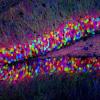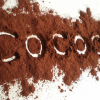I just finished reading two papers showing evidence that GABAergic activity inhibits progenitor cell neuroblast and migration. Progenitor cells, for those who dont know, are newborn neural cells that undergo a differentation process into mature neurons. They are the first step into neurogenesis, induced by BDNF and other mechanisms which people here are trying to achieve. But on the other hand, GABAergic activity seems to increase proliferation. This has something to do with progenitor cell depolarization(excitation) but ionotropic receptors is not my strong side, so maybe someone can shed some light into it.
The opposite function is driven by glutamate receptor activity (AMPA & NMDA) which promotes migration and differentation. So heres a crazy idea, instead of juicing up on AMPAkines and trying to increase BDNF in any means which seems to be bottle-necked by GABA anyway, why not inhibit GABAergic activity to some degree? The thought does indeed scream "DANGER" considering convulsions, but there is a right way and a wrong way to do everything.
Ofc, long term this would result in GABAergic upregulation due to direct receptor interaction. Perhaps an indirect downregulator would be better.
L-theanine does not look so good now. That it might boost BDNF to a certain degree could directly be regarded as a homeostasis compensation from neurogenesis inhibition. For neuroprotection, sure, but if you want the best out of neurogenesis then no.
Also, to anyone suffering from excitatory medical conditions(epilepsy, anxiety, insomnia etc), stay away please.
Some things to consider:
Pregnenolone, GABA antagonist, increase neurogenesis.
Chronic, but not short term, administration of Eszopiclone(GABA agonist) induces neurogenesis. If above hypothesis is true this could be explained by overall GABAergic activity downregulation by chronic excessive activity.
Bicuculline, GABA A antagonist, increase speed of neuroblast migration by 27%
Benzodiazepines and alcohol, inhibitory effect on neurogenesis
Note that neurogenesis does not equal BDNF increase, this is "one step further" into the mechanism.
Papers:
http://www.ncbi.nlm....cles/PMC2556597
http://www.academia....nerated_neurons




















































